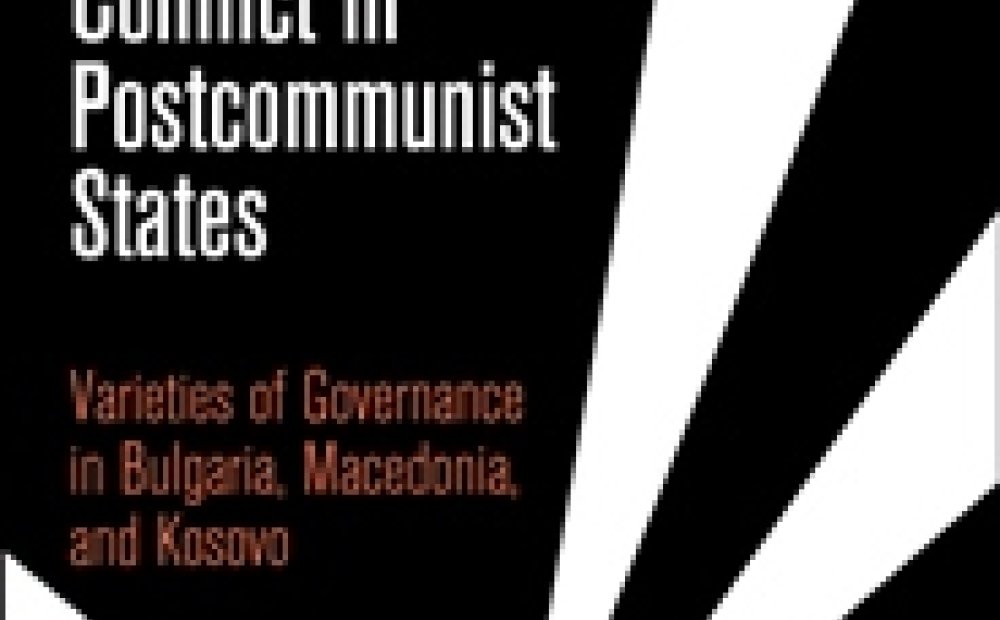Ethnonationalist Conflict in Postcommunist States

In this comparative study, Maria Koinova applies historical institutionalism to conflict analysis, and develops a theory about the emergence, continuity, and change of informally institutionalized conflict dynamics over time. It demonstrates that conflict dynamics are much more static than current conflict scholarship is inclined to think.
Two questions are at the heart of the study: Why do ethnonational conflicts reach different degrees of violence? Why does violence continue to reoccur even after strong international intervention for conflict-resolution and democratization? To answer these questions, Maria Koinova combines research on civil wars with the study of non-violent majority-minority disputes by examining 5 degrees of violence in three cases – Bulgaria, Macedonia, and Kosovo – over a 20-year period.
Koinova traces the development of the informally institutionalized conflict dynamics to a volatile, formative period between 1987 and 1992. In this era of instability, new informal rules were formed among majorities, minorities, international agents and kin-states, which delineated what is an “appropriate” behavior towards other agents in a specific context. Whether the conflicts initially evolved in peaceful or violent ways, the dynamics of their disputes became self-perpetuating and informally institutionalized. The book identifies causal mechanisms of conflict perpetuation and change operating across these three cases over time. Mechanisms of conflict perpetuation are: “advantage of political incumbency,” “adaptive expectations,” “negative learning,” and “drift” combined with a reactive sequence. Mechanisms of change are: “replacement” and “layering.”
Ethnonationalist Conflict in Postcommunist States demonstrates that relationships between various agents are durable whether in intractable conflicts or in more peaceful ones. They are based on deeply ingrained informal rules, not only on informal networks or formal policies and legislation. Agents adapt to each other in these conflicts. International actors and kin-states are no more exogenous to these conflicts. Thus external policies or interventions could affect only minimal change, and the impact of international agents subsides over time. Therefore the book appeals to policy makers to address not simply the motivations of domestic and international actors in a specific conflict, but to understand and target the motivational structures in which all agents are embedded.
Speaker
Associate Professor, PAIS, Warwick University, United Kingdom
Hosted By

Global Europe Program
The Global Europe Program is focused on Europe’s capabilities, and how it engages on critical global issues. We investigate European approaches to critical global issues. We examine Europe’s relations with Russia and Eurasia, China and the Indo-Pacific, the Middle East and Africa. Our initiatives include “Ukraine in Europe”—an examination of what it will take to make Ukraine’s European future a reality. But we also examine the role of NATO, the European Union and the OSCE, Europe’s energy security, transatlantic trade disputes, and challenges to democracy. The Global Europe Program’s staff, scholars-in-residence, and Global Fellows participate in seminars, policy study groups, and international conferences to provide analytical recommendations to policy makers and the media. Read more
